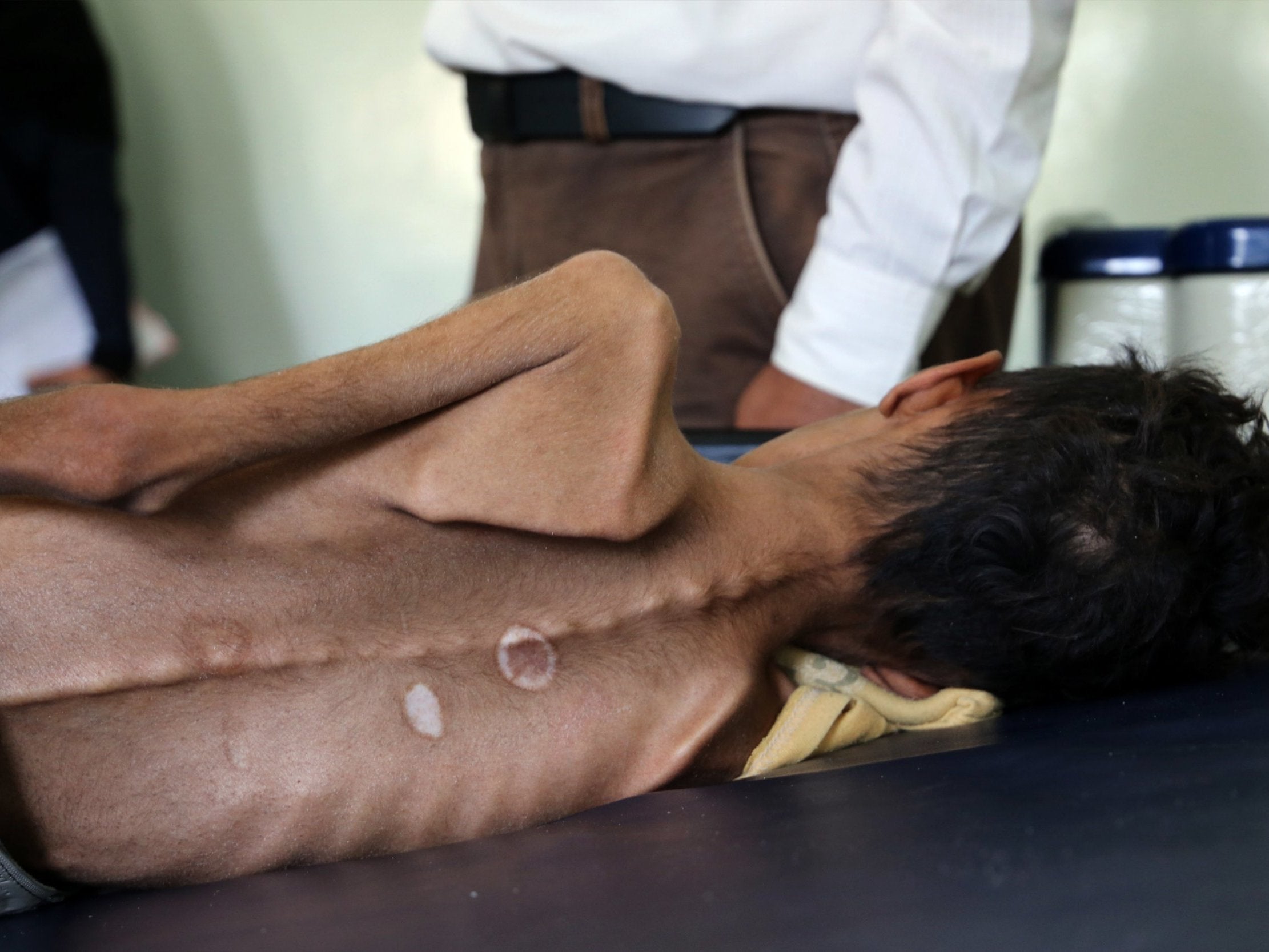Britain ‘complicit’ in Yemen famine, Tory ex-cabinet minister warns amid calls to end arm sales
UK-supported Saudi coalition ‘killing civilians and bombing own aid supplies,’ MPs told

A former cabinet minister has said Britain is “complicit” in creating a famine in war-torn Yemen because of its support for the Saudi-led coalition, amid growing calls for the UK to halt its sales of arms to the group.
Andrew Mitchell, who was international development secretary in David Cameron’s government, has urged foreign secretary Jeremy Hunt to reassess the government’s stance on the issue.
It came as opposition MPs have also criticised the government for maintaining arms sales to the Saudi-led coalition fighting Iran-aligned Houthi rebels in Yemen.
Mr Mitchell said: “Has our new Foreign Secretary had a chance to review the position of the British Government at the United Nations in respect of the Yemen? Will he move from a position of supporting the Saudi coalition, where Britain is complicit in creating a famine, to one of constructive neutrality to secure a ceasefire and meaningful constitutional negotiations, as the UN special representative Martin Griffiths is consistently urging and trying to secure?”
In response, Middle East minister Alistair Burt, said the UK would bring forward a resolution at the UN “as soon as the right opportunity arises”.
He told the Commons: “On 15 March the UK proposed and co-ordinated a United Nations Security Council presidential statement which called on the parties to agree steps towards a ceasefire – that remains our position. Calling for a nationwide ceasefire will only have an effect on the ground if it’s underpinned by a political deal between the conflicting parties.
“Given the lack of agreement between those parties, passing a ceasefire resolution risks undercutting the UN envoy’s efforts to reach a political deal and undermining the credibility of the council. As soon as the right opportunity arises we will bring forward a resolution.”
Theresa May’s government has previously argued, with high court backing, the supply of weapons to Saudi Arabia does not breach UK arms export licence laws as it claims there is no clear risk of a serious breach of humanitarian law by the Saudi coalition.
The value of sales to Saudi Arabia approved by Whitehall in 2017 totalled £1.13bn – over 70 per cent of all weapons exports.
But MPs heard that civilians were dying and aid supplies bombed by the Saudi coalition.
At an International Development Committee meeting on the situation in Yemen, Jan Egeland, secretary-general of the Norwegian Refugee Council, warned Mr Burt: “Millions will end up in horrific famine – the worst famine for a generation, unless there is enormous change, and we would look to UK action in a number of areas.”
“On the Saudi side there are three countries that have influence – not 190 countries, the members of the UN. It’s the US, the UK and France… You need to take initiatives.”
One of the key actions must be for the UK to stop selling the Saudi coalition arms, he said.
“What must change is the UK, US and France saying, ‘we are your main arms salesman, we are your main intelligence and strategic partners, we demand a ceasefire. Stop the air raids, stop the campaign and stop the offensive’," he said.
Brighton Kemptown MP Lloyd Russell-Moyle asked whether through arms sales the UK had “thrown its lot in with the Saudis”, and if it could still play an arbitration role.
Mr Egeland replied: “No, your chance of being arbitrator has not gone. The continuing policy (of selling weapons) has to change.”
Marwa Baabbad of the Oxford Research Group, who appeared alongside Mr Egeland also called for an “immediate” end to arms sales, saying in the case of the Saudi coalition supported by Britain “we are seeing air strikes resulting in the deaths of civilians”, and had even bombed water sources provided by the UK.
“The coalition has bombed our own aid?” Mr Russell Moyle asked.
“Yes”, Ms Baabbad replied, and her answer was immediately supported by Dina El-Mamoun, the head of advocacy and policy in Yemen, for Oxfam. “I echo that very strongly”, Ms El-Mamoun said.
The children wounded in Yemen's war
Show all 15She also said the Houthi rebels opposing the Saudi coalition had laid numerous minefields, resulting in “huge” numbers of deaths. “The UK government must also work on pressuring actors like Iran into stopping aiding the Houthis when it comes to arms, and holding them accountable for their own atrocities”.
Summing up his comments to MPs, Mr Egeland said: “Let us now have the UK not having their fingerprints all over arms transfers and the military relationship but (instead) designing the road plan for an end to this cataclysmic situation.”
Agencies contributed to this report
Subscribe to Independent Premium to bookmark this article
Want to bookmark your favourite articles and stories to read or reference later? Start your Independent Premium subscription today.

Join our commenting forum
Join thought-provoking conversations, follow other Independent readers and see their replies